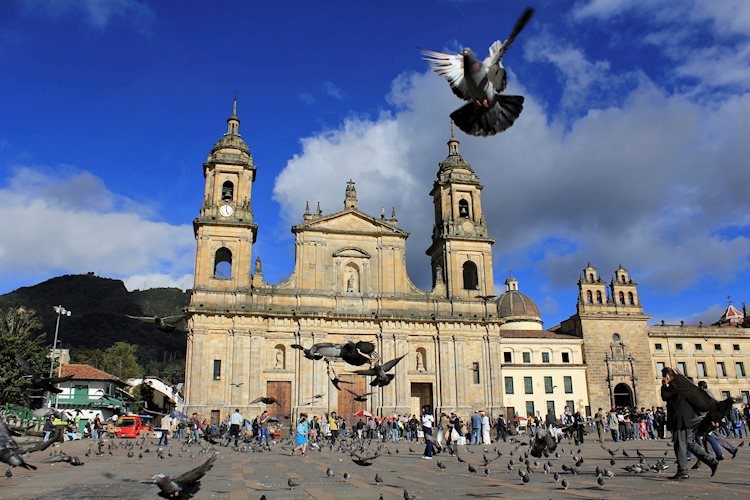Tuesday, noon twenty-three. Rodolfo de Santis could be in one of his other eight restaurants in São Paulo, but he was exactly in the only one that didn’t open for lunch: the ninetto . Also unique outside the Itaim Bibi neighborhood, in São Paulo.
On the way down from Rua da Consolação, in Jardins, the discreet point remained for 15 years under the façade of the Tappo Trattoria stylish canteen Benny Novak which, during 2013, had the young Italian cook in question as its star.
Today, his old job is the smallest salon in Nino family , with only 32 seats. No wonder, its charming intimacy seemed especially inviting for a frank conversation, a bottle of chardonnay and for testing some novelties prepared by sous-chef Victor Vieira.
“For me it is one of the most beautiful houses in the group, but there are things that go beyond the outdoor area. That’s where I started to create. Energetically, it means a lot for the history it carries”, reveals Rodolfo.
In fact, until he arrived in that kitchen, he had already headed two restaurants in Brazil. “When I started at Biondi, I didn’t know what I was doing, my food had nothing to do with the place, with the customer. At Tappo, I dedicated myself 100%, as if it were my own, but I didn’t have the same credibility from the partners as I do today”, reveals Rodolfo.
Yes, his cuisine made diners and headlines, but his ambitions did not resonate with investors. The passion was ephemeral and the outcome, as expected, was not the most romantic.
“In the middle of the pandemic, I found a way to buy the point without introducing myself. That thing that we allow ourselves to do less on the business side, more on the ego side”, she confesses.
Luckily, the passionate acquisition pleased the investment firm’s current partners XP which, with R$ 100 million, amalgamated the Alife-Nino, bringing together 31 bars and restaurants in a single group.
From the outset, the idea was to convert the Ninetto into an accessible and replicable model throughout Brazil. However, one afternoon in that luxury train car ambience took the Italian to travel back in time. Then another direction:
“Life has hit me too hard for me not to perfect the business while it’s running. Ninetto couldn’t become a cheap brand, it’s my refuge. In the midst of everything I have to do, I manage to come here and talk to Victor, who has been with me for nine years. I may not even be in my uniform in the kitchen, but I see myself in it, it reminds me of who I am, when I earned R$4,000 and where I came from”.

Where he arrived, understand the guy who, at 35, already has 20 years of career and 10 gastronomic brands (Nino Cucina, Peppino Cantina, Da Marino, Ninetto, Giuietta, Madame Suzette, Forno da Pino, Aquiles Taberna, Vito Mozzarella Bar and Nino Casa Tua ), which serves more than 50,000 customers, sells more than a ton of fresh pasta alone and earns a few million reais each month.
Let no one be deceived, the guy who, apart from the angelic countenance, speaks softly and slowly, doesn’t play the poor thing. Nor does he fail to mention the hardships of childhood in the commune of Gallipoli, Italy. “I was born poor as hell, grew up without a father, left home at 13 and always wanted to have a structure for my family”.
De Santis wanted and fought for her. Inspired by TV cooking shows, at the age of 14, he entered a scuola alberghiera (cooking technical college) in Milan and even managed “to work at night in a Michelin-starred restaurant (the Ristorante Il Gelso di San Martino )”.
From there, it went through two three stars (the Le Cinq in Paris, and the La Pergola , in Rome) until crossing the Atlantic at the end of 2010. He worked in a restaurant without ever having sat at a table. She worked in a restaurant, worshiping luxury and craving the supermarket. She worked – and works – non-stop.

Let it be clear: Rodolfo was the protagonist of his own changes and, in addition, he changed the scenario of Italian cuisine not only in a city as Italianized as São Paulo, but in Brazil as a whole. Seu Nino Cucina showed that between Fasano and the traditional canteens of Bexiga there was an abyss. He leaned over it and glided. He put the carbonara on the wheel, the octopus in the sauce and the burrata on the pasta.
No wonder, the brand, exhaustively copied around, will hit the road by itself – it opens in the second semester in Ipanema, in Rio, and in Parque Vaca Brava, in Goiânia.
“Each house will have its own personality, but the essence, professionalism and Nino experience will be the same. We’ve been evolving for almost seven years,” he says.
As a restaurateur, he develops his own philosophies. “There are talented chefs who can’t make an account. There are people who think that a restaurant is an instrument for you to appear in a magazine. That’s why I don’t have much of an internship culture. I prefer to take people I’ve never had in my life and, on a daily basis, teach them how to work, how to earn money. I get a boy at the Iguatemi lighthouse, I already put a psychologist inside Nino, I’m setting up a training house, because I know what it is”.
Choosing the business wing may even overshadow the “belly vein in the stove”, however, no longer the confidence in one’s own talent and the desire to put it to the test. “There are days when it is difficult to accept this change and I ask myself: what are you doing, you already have much more than you thought you had and there are days when I think we are leaving a legacy, you know?”.
On a day when doubts loomed, the chef went undercover at Nino’s. As usual, the house that receives 17,000 people a month was packed. Still, he left satisfied. “It’s hard to eat a carbonara like that in Italy, with that movement. Without an Italian in the kitchen, forget it! Of course the restaurant needs improvement all the time, but I was happy. I go to New York, to Rome for carbonara and it’s hard to find that pattern.”
Total satisfaction is another matter. It will only come when Nino’s expansion project ends and Rodolfo makes a commitment to himself – to have a signature restaurant.
“I will open it when the priority of my life is the excellence of the place and not my work, because when I do what I like and know, I will do it very well”, he confesses. Does anyone doubt?
Source: CNN Brasil






